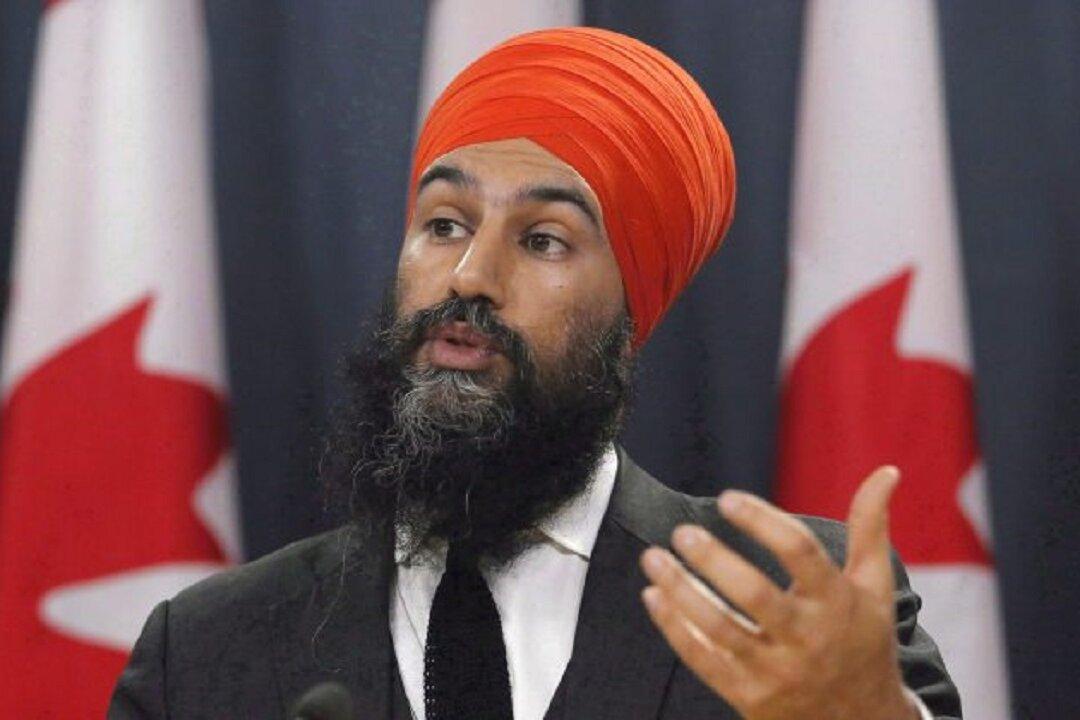OTTAWA—Jagmeet Singh’s political fate—and the fortunes of the New Democratic Party as a whole—are in the hands of voters today in a British Columbia riding.
The NDP leader is running for a seat in the House of Commons in Burnaby South, one of three federal ridings holding byelections today.





